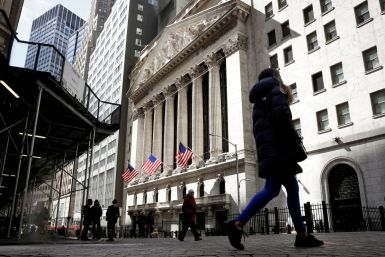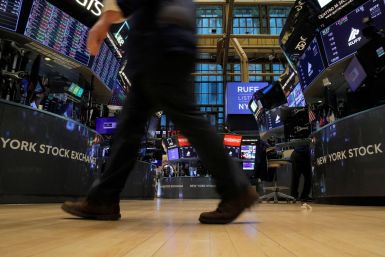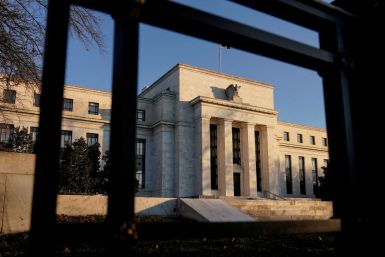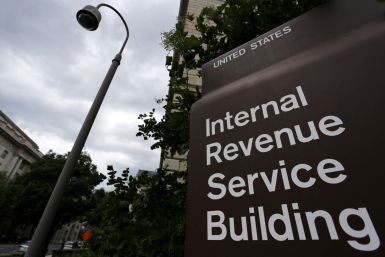The euro gained a fraction in early trade on Monday following French President Emmanuel Macron's comfortable Sunday defeat of far-right rival Marine Le Pen, the outcome largely expected by markets and political analysts.
The U.S. dollar struck a two-year high on Monday as a wave of risk aversion hit global markets, while the Chinese yuan was set for its biggest three-day losing streak in nearly four years on growing worries of an economic slowdown in China.
The U.S. dollar scaled two-year peaks, as a wave of risk aversion hit global markets, while the Chinese yuan posted its largest three-day losing streak in nearly four years on growing worries of an economic slowdown in the world's second-largest economy.
European markets will breath a collective sigh of relief on Monday as pro-EU centrist Emmanuel Macron looked set to win a second term as France's president, beating rival far-right candidate Marine Le Pen.
The International Monetary Fund said on Saturday it held "fruitful technical discussions" with Sri Lanka on its loan request, while the World Bank said it was preparing an emergency aid package for the crisis-stricken country.
Workers at a Panasonic auto parts plant in northern Mexico elected an independent union this week, marking another defeat for one of the country's biggest labor organizations as Mexico seeks to strengthen worker rights in line with a new trade deal.
Indonesian Finance Minister Sri Mulyani Indrawati on Friday joined a growing chorus of officials calling for reforms aimed at better equipping the World Bank to address mounting global challenges such as climate change and the changing nature of its clients.
U.S. Postmaster General Louis DeJoy says the agency is dealing with significant inflation costs as it works to stem losses, acknowledging higher costs will put further pressure on stamp prices.
Energy prices that have soared since Russia's war in Ukraine are a "major concern" for South Africa's economy, Finance Minister Enoch Godongwana said on Friday, while it was too soon to quantify the full impact of last week's devastating floods.
Amsterdam Trade Bank (ATB), a subsidiary of Russia's Alfa Bank, has been declared bankrupt, the Dutch central bank (DNB) said on Friday, citing an Amsterdam District Court Ruling.
Investors are hoping a flood of U.S. quarterly reports next week, including those from megacap growth titans, will confirm a solid profit outlook for corporate America and bolster the case for stocks after a rocky start to the year.
With expectations for a half-percentage point rate hike at the Federal Reserve's May meeting now locked in, traders on Friday piled into bets that the central bank will go even bigger in subsequent months, but one Fed policymaker pushed back, saying a more "methodical" approach was appropriate even in the face of too-high inflation.
Bank of Japan Governor Haruhiko Kuroda said on Friday the central bank should "persistently" continue with its current aggressive monetary easing, despite an expected temporary rise in inflation driven by surging commodity costs.
Brazil's economy has entered a phase of stagnation that will persist next year as unrelenting inflation curtails consumer spending and policymakers struggle to find answers, a Reuters poll showed.
U.S. stocks tumbled on Friday after some weak earnings reports, with growth shares coming under pressure in a torrid week that saw bond yields surge on expectations of interest rate hikes.
All three Wall Street benchmarks were more than 2% lower on Friday, stumbling towards the end of a week which has seen whipsaw moves caused by surprise earnings news and increased certainty around aggressive near-term interest rate rises.
Wall Street tumbled more than 2.5% on Friday, ensuring the three main benchmarks ended in negative territory for the week, as surprise earnings news and increased certainty around aggressive near-term interest rate rises took its toll on investors.
Investors have discounted Marine Le Pen winning the French presidency on Sunday, so an upset would cause a selloff in French government bonds and dent the euro, fund managers and economists told the Reuters Global Markets Forum.
European Central Bank President Christine Lagarde told policymakers to hold back on dissenting views on decisions for several days, a move critics say stymies their ability to present an honest view of the debate, sources said.
European shares closed at near one-month lows on Friday as a cocktail of negative factors from China's COVID lockdowns to worries about rapid interest rate hikes subdued sentiment globally.
British consumers are feeling the strain of a tightening cost-of-living squeeze with retail sales sliding fast and consumer confidence approaching all-time lows, according to data that sent a fresh warning sign for the economy.
Britain's economy is losing steam as households face a tightening cost-of-living squeeze, according to data published on Friday which showed sliding retail sales and consumer confidence approaching all-time lows.
Britain's economy is heading for a slowdown, or possibly even a recession, as consumers and businesses are hit by the leap in inflation, higher taxes, rising interest rates and uncertainty caused by the war in Ukraine.
Germany's industrial heavyweights are teaming up to retrain workers in areas such as software and logistics to fill a growing skills gap and avoid layoffs among workers of all ages as the economy shifts to clean energy and online shopping.
A months-long rally in the dollar may be reaching its peak as the Federal Reserve gears up to deploy more interest rate hikes, according to the currency's trading patterns in past tightening cycles.
Expectations that a hawkish Federal Reserve will cause an economic slowdown are pushing some investors to increase exposure to long-term Treasuries, as policymakers continue signaling they are ready to ramp up their fight against inflation.
Japan's government will raise the cap for gasoline subsidies and replenish state reserves by compiling an extra budget to cushion the economic blow from rising raw material costs, a draft of its planned relief package obtained by Reuters showed on Friday.
Gold prices were flat on Friday, pressured by the strength in U.S. Treasury yields and the dollar, which also put bullion on course for its first weekly loss in three.
Gold prices dipped on Friday and were on track for their first weekly loss in three, as rising U.S. Treasury yields and a firmer dollar dented bullion's appeal.
Gold prices fell on Friday as the prospect of aggressive interest rate hikes boosted U.S.







































